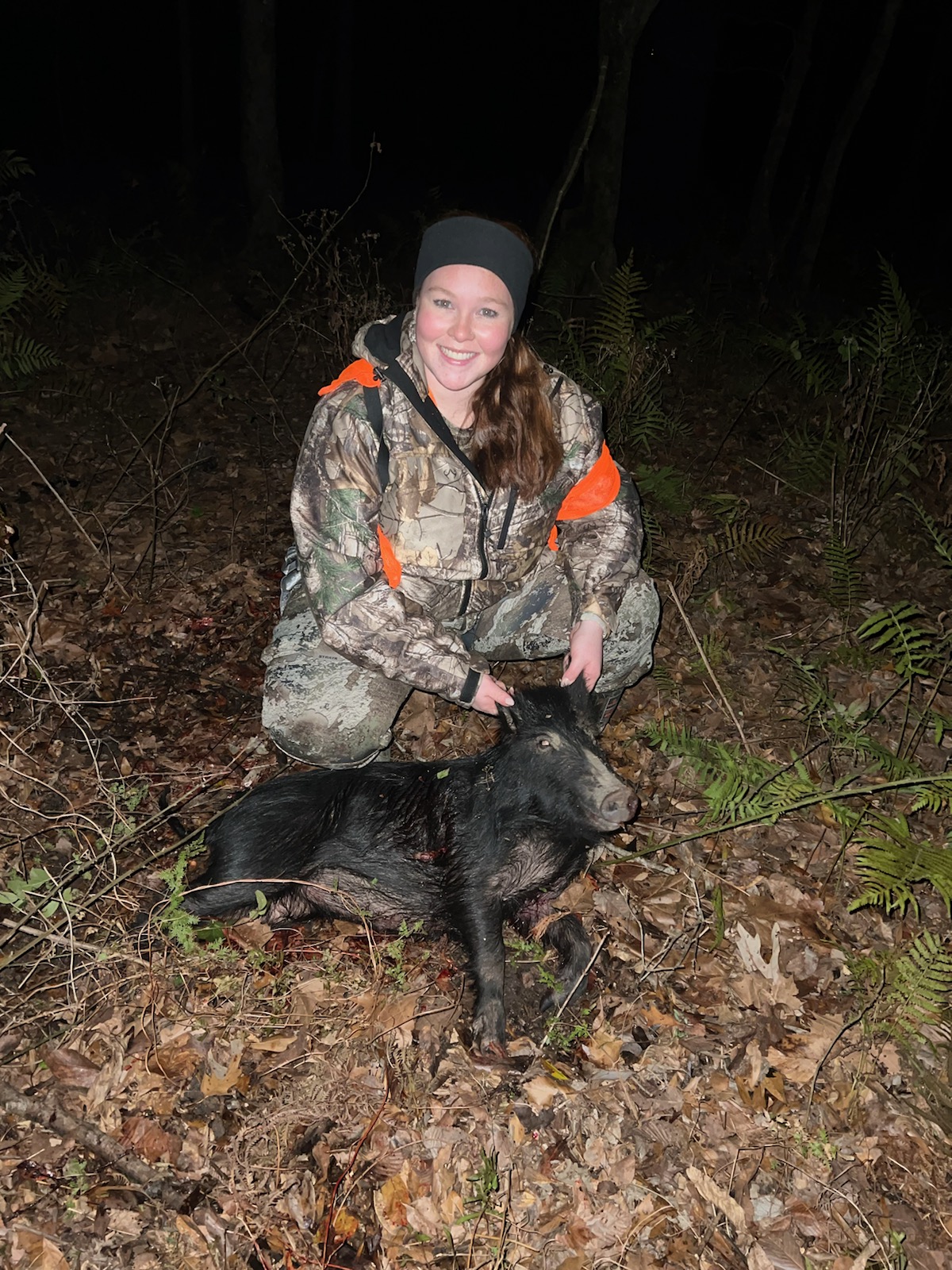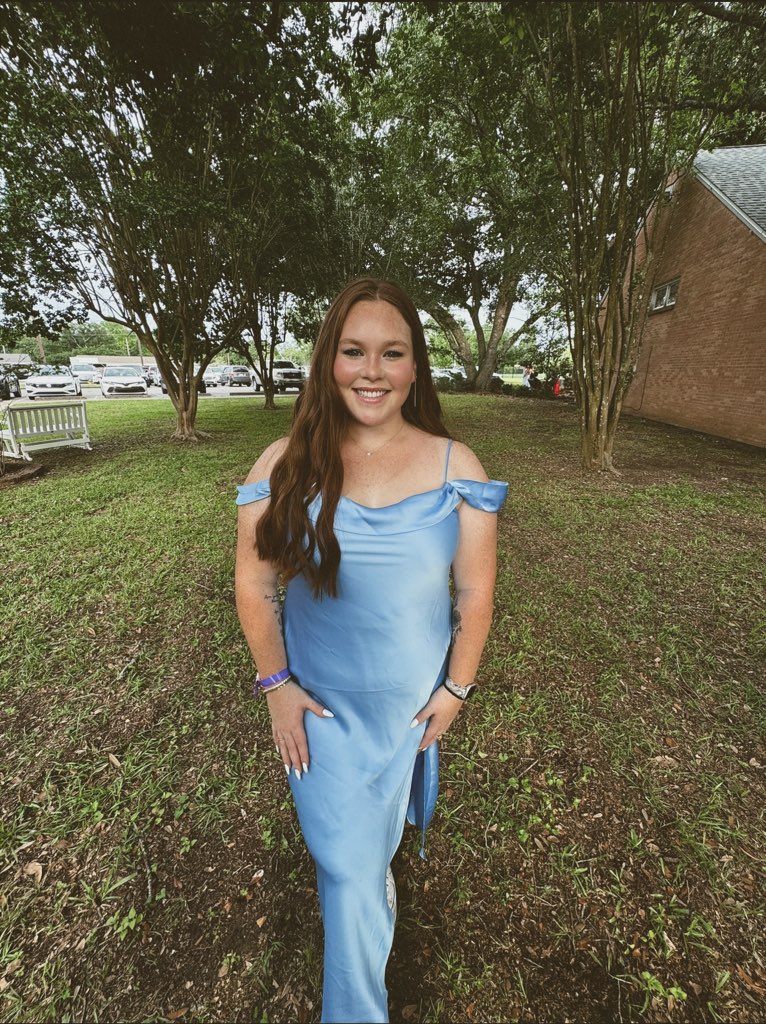Empowered living with Von Willebrand Disease: Cherie's story of strength at the Bleeding Disorders Clinic
- Category: Patient Stories
- Posted on:

At age 13, Cherie began experiencing unexplained exhaustion and severe bruising. As a young athlete, she initially brushed off these symptoms, but persistent fatigue and heavy menstrual bleeding lasting up to 21 days signaled a deeper issue. Concerned for her health, her parents sought medical advice, leading to a diagnosis that would change her life forever.
Cherie eventually found the help she needed at the Hemophilia, Bleeding and Thrombosis Disorders Center (Hemophilia Treatment Center [HTC] Clinic) and Girls and Adolescents with Blood Disorders and Sickle Cell Disease (GABS) Clinic at Children's Hospital New Orleans, where she received specialized treatment from Maria C. Velez, MD, a pediatric hematologist-oncologist, Medical Director of the HTC and founder and clinic co-lead of GABS.
“Dr. Velez and the GABS Clinic team at the HTC have been heaven sent,” said Cherie. Now 21 years old, Cherie understands how to manage her condition and advocate for herself no matter what situation she finds herself in. She wants other teenage girls who might have lengthy menstrual cycles and similar symptoms to know that help is available. 
Cherie’s symptoms began to interfere with her daily activities in middle school. She started to come home from school every day completely exhausted, nap until dinner, and then go right back to sleep. Additionally, she experienced anemia, which only added to her exhaustion. The fatigue, combined with severe bruising and extended menstrual bleeding, alarmed her parents. This prompted a series of tests to uncover the cause of her symptoms.
Initial tests in her hometown of Lafayette were inconclusive. Cherie’s pediatrician referred her to the HTC Clinic at Children’s Hospital New Orleans, where she was diagnosed with Von Willebrand Disease (VWD), the most common bleeding disorder. VWD affects the blood's ability to clot properly, leading to excessive bleeding and easy bruising due to low levels or malfunctioning of a protein critical for platelet adhesion and blood clotting.
After a period of uncertainty, Cherie’s first visit to the HTC/GABS Clinic marked a turning point, providing clear and immediate answers about her symptoms. The GABS clinic specializes in diagnosing and treating girls and adolescents with blood disorders, including heavy menstrual periods, bleeding and clotting disorders, anemia, and sickle cell disease. The clinic’s multidisciplinary team includes hematologists, adolescent medicine specialists, gynecologists, genetic counselors, and social services, ensuring comprehensive and coordinated care. 
Cherie recalls being young and a little bit scared, but mostly thankful that she was finally getting the help she needed to start feeling better. She was also very grateful that someone listened to her parents’ concerns about her health. The clinic’s depth of knowledge and clear communication reassured Cherie and her family, providing a path forward to managing her condition and improving her quality of life.
At the HTC Girls and Adolescents with Blood Disorders and Sickle Cell Disease Clinic, Cherie received a tailored treatment plan that included medications to manage her VWD symptoms and strategies to handle potential bleeding events.
Bleeding disorders in teenage girls require a holistic approach, addressing not only the medical aspects but also the emotional and social challenges they face. By integrating comprehensive care from hematologists, adolescent medicine specialists, gynecologists, genetic counselors, and social services, the GABS Clinic team ensures that patients receive personalized treatment plans that address all facets of their well-being. “Our goal is to provide a supportive and informative environment where patients and their families feel empowered and equipped to manage their conditions confidently,” said Dr. Velez.
Cherie was prescribed hormone treatment to manage her menstrual cycle and additional medication to reduce bleeding during her periods. Additionally, she was introduced to factor infusions, which involve administering the deficient clotting protein (von Willebrand factor) directly into the bloodstream, for dental or surgical procedures to prevent bleeding and promote adequate clotting and healing, as Von Willebrand Disease often requires these infusions due to the body’s insufficient ability to clot and stop bleeding. 
In addition to the medical treatment from Dr. Velez, Cherie received meaningful support from the clinical staff, particularly Ms. Claudette Vicks, a Hematology-Oncology Nurse Navigator in the HTC/GABS Clinic. “Ms. Claudette is way more than just a nurse. If I have any problems or concerns, she is my go-to and is always on top of things, making sure I get the proper care and treatment I need. She is my bestie at the hospital!” Cherie said. Ms. Vicks' dedication and compassion have been instrumental in Cherie's journey, ensuring she feels supported and cared for every step of the way.
Managing VWD can pose significant challenges. Once, after cutting her finger and experiencing heavy bleeding, Cherie discovered that her hometown hospital was not equipped with the medication she needed. This experience underscored the importance of the education and preparation she received from the HTC/GABS Clinic, which taught her how to advocate for herself and be prepared with the proper treatments for such bleeding incidents.
Cherie learned the critical need to have her clotting factor readily available and how to administer it herself. In the incident with her finger, Cherie was able to successfully manage the situation despite the challenges she faced. She now keeps a dose of her medication at home for emergencies, ensuring she can handle her condition effectively, even in urgent situations.
This proactive approach highlights the clinic's vital role in her ongoing care and self-management, supported by the multidisciplinary efforts of her pediatric hematologist, adolescent medicine specialist, nurse educator/navigator, gynecologist, dentist, pain management doctor, social worker, and the research team at the HTC/GABS Clinic, which helped Cherie effectively manage her condition and maintain her overall well-being.
Despite the obstacles, Cherie’s determination and the support from the HTC/GABS Clinic have allowed her to lead a normal and happy life. She’s been able to continue her studies in kinesiology with a concentration in pre-athletic training at the University of Louisiana at Lafayette and enjoys hobbies such as hunting, fishing, and playing and coaching volleyball. These activities, which might be daunting for someone with a bleeding disorder, are manageable for Cherie thanks to her treatment plan and self-management skills. 
For young women facing similar health challenges, Cherie shares her wisdom: “Advocate for yourself because this condition is rare and not widely known. Be prepared, have hope, and know that the symptoms you’re experiencing can be treated. You will start to feel better, especially if you are able to find a tested care team like I did with Dr. Velez at the HTC/GABS Clinic.”
Cherie emphasized the importance of being informed and proactive in managing one’s health, sharing her experiences to help others navigate their journeys. Her health experience highlights the need for patient advocacy and the impact of comprehensive care in managing chronic conditions related to Von Willebrand Disease.
As Cherie works with the Children’s Hospital New Orleans team to transition from pediatric to adult care, she remains optimistic about her future. She hopes to continue educating others about her condition and now feels empowered to face any future challenges head-on.
Cherie’s story is a testament to the comprehensive care and specialized support provided by the Girls and Adolescents with Blood Disorders and Sickle Cell Disease Clinic at Children's Hospital New Orleans. For more information on the specialized care she received, visit the GABS Clinic website. The dedicated team is committed to offering comprehensive and compassionate care to girls and adolescents with blood disorders, ensuring a brighter, healthier future for all their patients.



